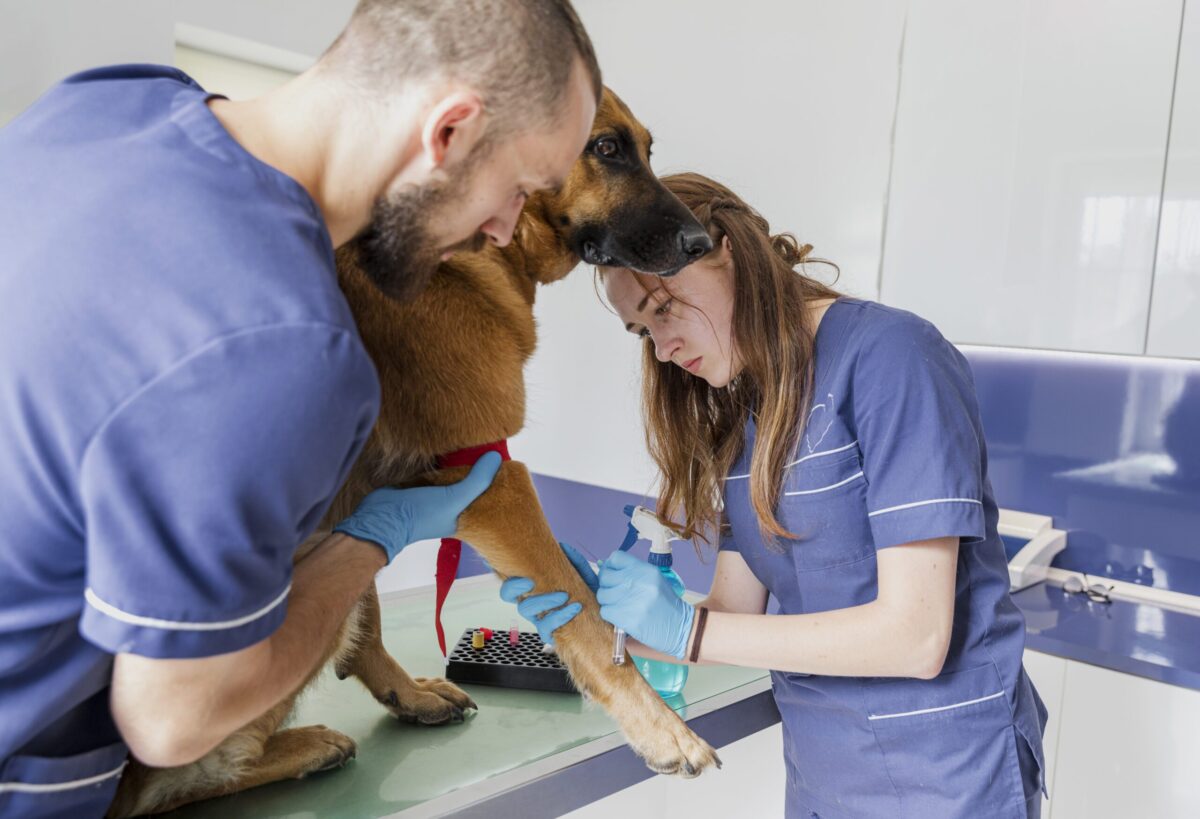April 22, 2025

Working as a relief veterinarian, vet tech, or vet assistant offers great flexibility and exciting career opportunities, but it also comes with unique challenges—one of the most important being insurance coverage. Whether you’re transitioning into relief work or have been doing it for years, understanding the types of insurance you need is crucial to safeguarding your career and protecting your health. This guide will walk you through the essential insurance coverage relief vets and veterinary professionals need.
Relief vet insurance refers to the coverage that veterinarians, vet techs, and vet assistants should have in place while working in temporary, contract-based, or freelance roles. Unlike traditional, full-time veterinary jobs, relief work typically doesn’t offer employer-sponsored insurance, making it essential for professionals in relief positions to seek out their own policies.
As a relief veterinarian or vet tech, you’ll need to find insurance that covers a range of potential risks—from professional liability to health and income protection. Understanding the different types of coverage available can help ensure that you’re fully protected as you navigate your career in relief work.
When it comes to relief vet insurance, there are several key types of coverage that are especially important. Let’s break down each type of insurance you should consider:
Professional liability insurance, also known as malpractice insurance, is essential for any veterinarian practicing in relief roles. It protects you if you’re sued for negligence, errors, or omissions while providing veterinary care. Even the most experienced vets can face legal challenges, so this insurance is critical to ensure you’re protected in case of an unfortunate situation.
For veterinarians practicing in relief roles, professional liability insurance is a must-have. This coverage ensures that you’re financially protected in the event of a lawsuit stemming from your veterinary services.
For more on creating a supportive environment for relief veterinarians, check out our article on Relief Veterinarian Clinic Tips for a Better Environment.
Health insurance is one of the most critical types of coverage, especially for relief vets who don’t have access to employer-sponsored plans. Relief veterinarians are typically classified as independent contractors, meaning they’re responsible for sourcing their own health coverage.
Health insurance can cover medical expenses for illnesses, injuries, and preventive care, helping you stay healthy and protected while performing your duties. Some relief vets may opt for health insurance plans through the marketplace, while others might seek coverage through trade organizations or professional veterinary associations that offer group plans.
If you’re concerned about health insurance as a relief vet, check out our article on Relief Veterinarian Fitness: Boost Your Health and Performance, where we cover how to maintain your health and well-being while on the job.
Disability insurance is another essential type of coverage, especially for relief professionals who don’t have the safety net of full-time employment benefits. This insurance protects your income if you’re unable to work due to illness or injury. As a relief vet, vet tech, or assistant, your ability to work depends on your health, so disability coverage provides peace of mind if you’re unable to perform your duties for an extended period.
Look into short-term or long-term disability insurance policies that fit your needs as a relief professional. Many independent contractors are eligible for personal disability policies, so it’s worth exploring your options.
For more tips on maintaining a successful career in relief vet work, be sure to read Relief Vet Pay: What You Can Earn and Factors Affecting Your Pay.
General liability insurance is critical for any professional who interacts with clients, pets, and staff. This type of insurance protects you from claims of bodily injury, property damage, or personal injury that might occur during your veterinary work. While relief veterinarians often don’t have a permanent clinic or practice, it’s still essential to carry general liability coverage in case of accidents.
This insurance is especially useful if you’re providing services in different veterinary clinics or facilities. It helps cover legal fees, medical expenses, and other associated costs if you’re involved in an accident or incident while providing veterinary care.
While relief vet techs and assistants don’t need as extensive insurance coverage as veterinarians, there are still essential policies to consider:
Just like relief veterinarians, relief vet techs and assistants should have professional liability insurance. This coverage protects you from claims related to your professional conduct, such as errors or negligence while performing your duties.
If you’re a relief vet tech or assistant, be sure your policy covers the full scope of your responsibilities. In some cases, you may also need specialized coverage depending on the types of procedures you assist with.
Health insurance and disability insurance are also important for relief vet techs and assistants. Since relief positions often don’t come with employee benefits, it’s essential to seek out individual health coverage that fits your needs.
Additionally, disability insurance can help protect your income if you’re unable to work due to health reasons. This is especially important in relief roles, where you may not have the same security as a full-time employee.
Selecting the right insurance plan can be overwhelming, but it’s essential for protecting yourself and your career. Here are some tips to guide you in choosing the right coverage:
While relief veterinary work offers great flexibility, it also comes with unique risks. Having the right insurance in place is crucial for protecting your health, your income, and your professional reputation. By ensuring that you’re adequately covered with the right types of insurance—whether it’s professional liability, health, disability, or general liability insurance—you can focus on providing top-notch care without worrying about unforeseen challenges.
For more information on how to succeed as a relief veterinarian, check out Relief Veterinarian Workplace Tips: Create a Supportive Clinic for advice on adapting to various clinic environments and boosting your career.